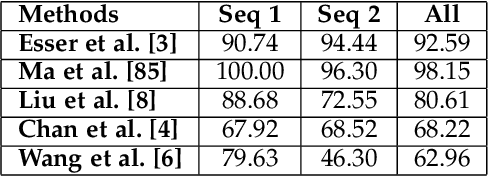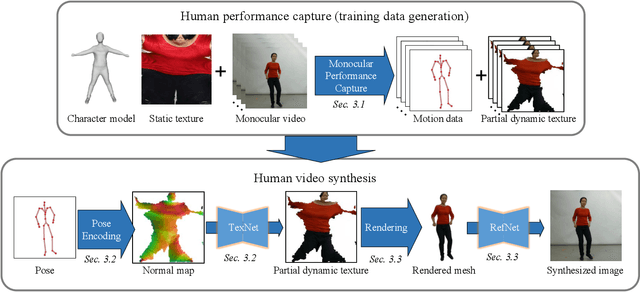Neural Human Video Rendering: Joint Learning of Dynamic Textures and Rendering-to-Video Translation
Paper and Code
Jan 14, 2020



Synthesizing realistic videos of humans using neural networks has been a popular alternative to the conventional graphics-based rendering pipeline due to its high efficiency. Existing works typically formulate this as an image-to-image translation problem in 2D screen space, which leads to artifacts such as over-smoothing, missing body parts, and temporal instability of fine-scale detail, such as pose-dependent wrinkles in the clothing. In this paper, we propose a novel human video synthesis method that approaches these limiting factors by explicitly disentangling the learning of time-coherent fine-scale details from the embedding of the human in 2D screen space. More specifically, our method relies on the combination of two convolutional neural networks (CNNs). Given the pose information, the first CNN predicts a dynamic texture map that contains time-coherent high-frequency details, and the second CNN conditions the generation of the final video on the temporally coherent output of the first CNN. We demonstrate several applications of our approach, such as human reenactment and novel view synthesis from monocular video, where we show significant improvement over the state of the art both qualitatively and quantitatively.
 Add to Chrome
Add to Chrome Add to Firefox
Add to Firefox Add to Edge
Add to Edge